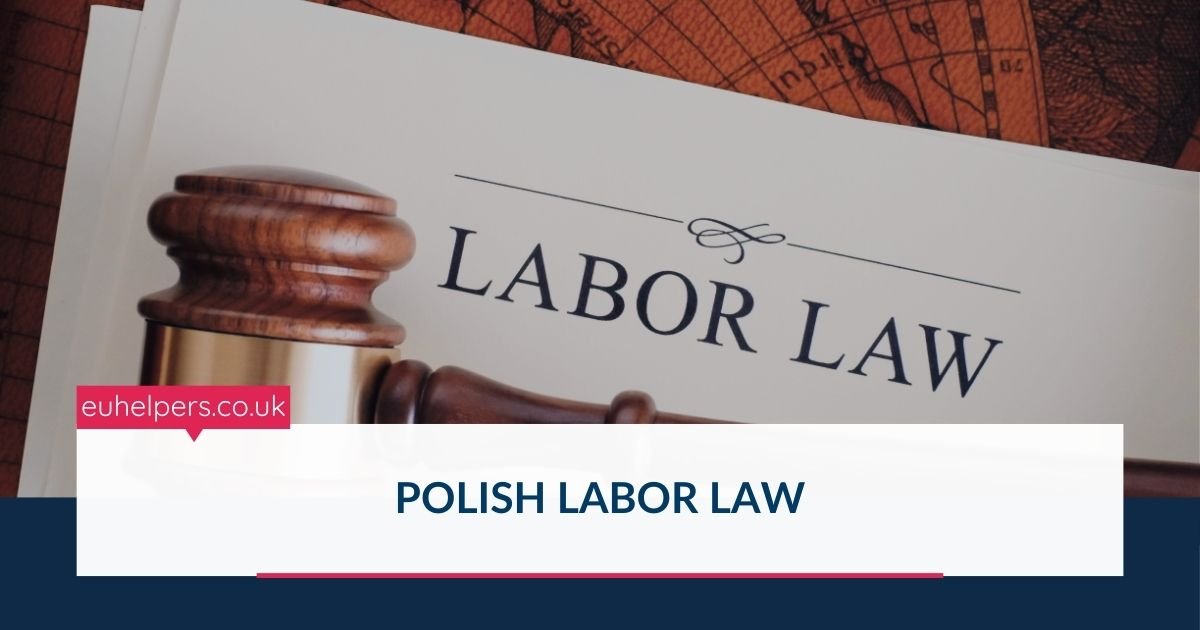Polish labor law, grounded primarily in the Labor Code, provides a comprehensive legal framework that regulates the rights and responsibilities of both employers and employees. It covers a broad range of issues—from wages and working hours to protections against discrimination—ensuring a balanced and fair working environment. The Labor Code is supplemented by other legal sources, including the Constitution of Poland and European Union (EU) legislation.
Key Elements of Polish Labor Law
Minimum Wage and Standard Working Hours
-
Minimum Wage: As of January 1, 2025, the gross monthly minimum wage for full-time employees in Poland is set at PLN 4,666 (approximately €1,100.57). This is regulated by national legislation and adjusted periodically to match economic conditions.
-
Working Hours: A typical workweek in Poland consists of 40 hours, usually spread across five working days (Monday to Friday). Employees are entitled to regular breaks and daily rest periods.
-
Overtime Regulations: Overtime is permitted under specific conditions, such as in emergencies or to meet particular operational needs. However, overtime hours are capped at 150 hours per year, unless stated otherwise in a collective labor agreement or employment contract.
-
Working Time Systems: The Labor Code allows for various working time arrangements, including basic, intermittent, and task-based systems, providing flexibility in work schedules according to the nature of the job.
Employee Rights and Protections
-
Anti-Discrimination Measures: Polish law strictly prohibits discrimination in the workplace based on factors such as gender, age, disability, religion, ethnicity, and nationality. Employers are obligated to ensure equal treatment and opportunities for all employees.
-
Employment Contracts: The Labor Code defines several types of employment contracts, including:
-
Fixed-term contracts
-
Indefinite-term contracts
-
Probationary contracts
Each contract type carries specific rules regarding duration, renewal, and termination.
-
-
Notice Periods: Termination notice periods depend on the length of service with an employer:
-
2 weeks (for less than 6 months of service)
-
1 month (for 6 months to 3 years)
-
3 months (for more than 3 years)
-
-
Unpaid Leave: Employees may request unpaid leave for personal or professional reasons. This includes provisions such as employee leasing, where an employee temporarily works for a different employer while maintaining employment with their original company.
Rest and Wellbeing Provisions
-
Weekly Rest: Employees are entitled to at least 35 consecutive hours of rest per week, which must include a minimum of 11 hours of uninterrupted daily rest. These rest periods are vital for maintaining health, safety, and work-life balance.
Legal Foundations
-
Labor Code: The central legal document governing labor relations in Poland. It outlines all fundamental aspects of employment, including rights, obligations, contracts, and workplace standards.
-
Constitution of the Republic of Poland: Establishes broad social and labor rights, including the freedom to work and the right to safe and fair working conditions.
-
EU Legislation: As an EU member state, Poland incorporates European labor standards into its national legal framework, particularly concerning non-discrimination, health and safety, and employee mobility.
-
Collective Labor Agreements: In addition to the Labor Code, many employers and employees operate under collective agreements. These contracts, negotiated at the company or industry level, can offer additional benefits or more favorable conditions than the minimum legal requirements.
Poland’s labor laws provide a structured and employee-friendly environment, striking a balance between employer needs and worker protections. Whether you're an employer setting up operations in Poland or an expat entering the workforce, understanding the Labor Code, your rights, and your obligations is crucial for a smooth and compliant work experience.

